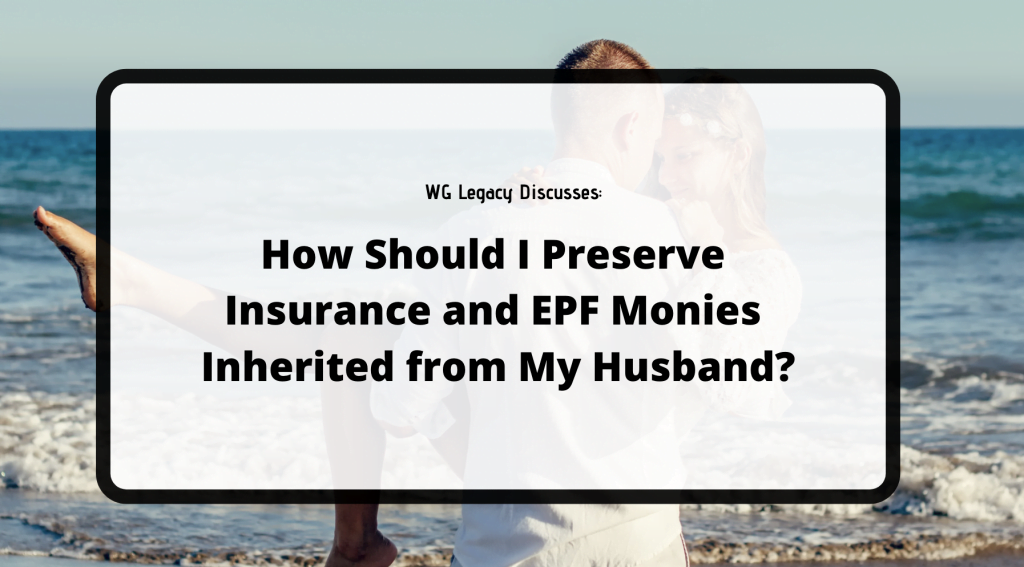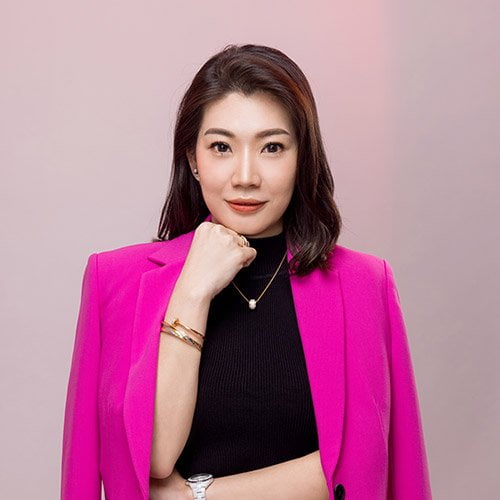Question:
Hi, my name is Jennifer. I have just become a widow six months ago as Mike, my husband passed on tragically due to a heart attack. As a result, I had collected a total of RM 800,000, consisting of RM 200,000 in Mike’s EPF monies and as well as RM 600,000 in insurance proceeds. I’ve been appointed as the executor of his will and from it, I’d been nominated as the sole beneficiary to all of Mike’s other estates, comprising his cash and our house.
I have two sons namely, Jeremy and Jason aged 10 and 8 this year. Together, we need around RM 5,000 a month in living expenses. As I write, my take home pay working as a HR executive is RM 4,000 a month. Excluding my receipts of Mike’s EPF and insurance monies, I have RM 30,000 in cash balance.
Since Mike’s passing, I’d been advised by well-meaning friends to put the money to work so that I can provide a better future for my two sons and myself. For the last six months, I was introduced to unit trust funds and savings plans as means for me to invest for the long-term. I was confused as I was not savvy in finances, especially investing.
Hence, my question is: ‘How should I invest and manage my money so that I can provide for myself and my two sons for many years to come?’
Answer:
First, if I’m Jennifer, I’ll start off with knowing what my objectives are. Here, this would involve a little soul searching where I’ll list down what I’ll be needing and spending in the immediate and future term. For the sake of our discussion, let’s keep it simple where, after much consideration, Jennifer wishes to:
a. Maintain Her Living Expenses at RM 5,000 a month for the time being.
b. Have, at least, RM 100,000 in a cash buffer to cover any additional expenses.
c. Set Aside RM 100,000 in University Fees for each of her two sons.
d. Preserve the monies left behind to her for as long as possible.
Where Should Jennifer be Investing?
Is it into unit trust? stocks? real estate? P2P lending? ETFs? or savings plan from a life insurance company?
If I’m Jennifer, I would ask myself two questions:
a. Am I knowledgeable of any of the above investments?
b. What if I made a loss from investing into any of them? Do I have a Plan B?
From above, it is best for Jennifer to not invest for she is not investment savvy. I believe an investment is best made if the investor is educated about it. It would be risky for anyone to invest if he is not knowledgeable about the investment.
In other words, it is okay for Jennifer to say ‘No’ to the proposed investments, if she does not fully understand them.
If Jennifer puts all her monies into FD accounts …
It is possible for her to use up the monies left behind within a short amount of time as a result of failed ventures into business or investments, being scammed by conned artists, or being manipulated or abused by her friends, relatives, and colleagues.
Sadly, the above describes how inheritance are lost within the first 3-5 years by their beneficiaries upon receiving them.
Even if Jennifer is careful with the monies given, she is still a mere mortal and it is possible for the monies to be frozen if she passes on or becomes comatose. If her sons are still minors, it is impossible for them to inherit these monies in the immediate term. As such, who then will take care of their livelihoods until both brothers reach adulthood?
So, what’s the solution to the above?
How can I assuredly provide for my two sons and myself financially until Jeremy and Jason reach adulthood?
Answer: If I’m Jennifer, I’ll Set Up a Private Trust.
and I’ll place RM 600,000 of the monies received into my Private Trust. Then, I’ll park the other RM 200,000 into multiple FD accounts.
Why a Private Trust?
This is because I could set instructions as to how the RM 600,000 placed within is to be managed. For instance, I can instruct the trustee to:
a. Invest all monies into multiple money market fund accounts.
b. Distribute all dividend income received from the money market funds to me on an annual basis.
c. Pay university fees of up to RM 100,000 each for Jeremy and Jason if they are enrolled into a local public or private university. If not, the amount shall be kept within the Trust until they hit 30 years old.
d. Pay for related medical and nursing expenses if I become disabled, comatose or diagnosed with a critical illness.
e. Distribute a fixed sum of RM 5,000 per month to Liz, my little sister whom I’d appointed as the guardian of my two sons, in the event of me passing on prematurely, becoming disabled, comatose, or missing if both Jeremy and Jason are still minors when it happens.
f. Distribute all balance sum evenly to Jeremy and Jason when Jason reaches 30 years old if I pass on after both of them have attained adulthood.
As such, I can be assured that the bulk of the monies received shall not and will not be squandered away easily and if anything happens to me, I have the peace of mind knowing that the monies will continue to support my two sons till both of them attain adulthood in the future.
If you are a widow, it is wise to make prudent financial decisions so that you are able to preserve the legacy left behind and use it to provide for your loved ones for many years to come. Setting up your private trust is indeed a good start as it allows you to specify what or how exactly the money left behind to you is to be managed beforehand so that your financial future is protected.
To explore for more ideas, you can book a 30-minute appointment with a highly qualified estate planner worth RM 500 by filling up the details below:




